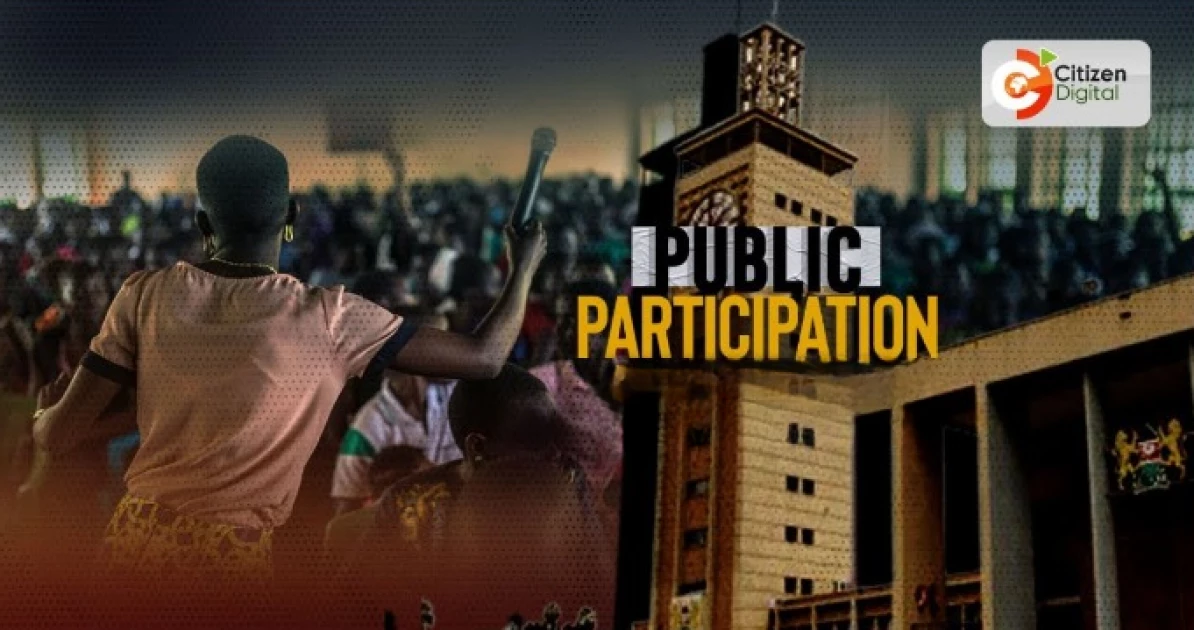Citizen Engagement: Redefining public participation for inclusive governance

"Can actively engaged citizens enhance policymaking through meaningful public participation?"
This question lingered as I attended a recent conversation on X space. I pondered the power of citizen engagement in an era where voices are often drowned out.
As experts explored how grassroots involvement, innovative dialogue, and collaborative efforts can transform policy landscapes and lead to more inclusive governance, I unpacked the dynamics of public participation through shared examples and a vision for a future where every voice matters.
The discussion, organized by Twaweza Kenya and Busara Centre, highlighted several key lessons and insights regarding the challenges and innovative approaches to public participation in civic engagement.
Barriers to public participation, such as work or family commitments, were identified as some of the key obstacles.
It was made clear that citizens face time constraints due to professional obligations, which makes it difficult for them to attend traditional meetings or forums.
"Public participation is not the same across the board. It needs to be tailored to the communities themselves, and it creates barriers among the community to effectively participate in civic activities," stated Brenda Ogutu, an Associate Engagement Director at Busara.
Lack of awareness is another critical factor. A general unawareness of participation opportunities can hinder engagement, especially among marginalized groups.
"Public participation is not targeted to spaces where the youth, who are the majority, are typically present," added Beaty Kimani, a community leader.
Similarly, skepticism toward government and decision-making bodies can discourage citizens from participating.
"Create feedback loops and mechanisms for citizens to continually engage with governments on policy creation and implementation. This fosters trust and meaningful interaction and dialogue," emphasized Monicah Akinyi, a Project Associate at Busara.
"Policymakers and governments should be intentional and realistic with timelines when it comes to public participation initiatives," advised Dennis Esikuri, a historian and social justice advocate.
Moreover, cultural and language barriers can limit engagement among diverse community members, particularly those with limited accessibility—whether physical, financial, or digital.
There were additional suggestions on innovative approaches to participation, such as engaging in sports and arts for conversations.
Using sports events and art projects as platforms for dialogue fosters community connection and inclusivity, making participation more enjoyable and accessible.
At the same time, sharing personal stories and experiences can resonate deeply with citizens, motivating them to engage and share their own perspectives.
Furthermore, educational sessions that raise awareness around specific issues not only inform citizens but also inspire active participation in civic matters.
Experts also stressed the need to move away from traditional participation approaches but insisted that this requires a solid foundation of research to understand community needs, preferences, and barriers.
"Diversify the forms by which the people on the ground can be part of public participation meetings and initiatives.
Leverage digital media to push for public participation," noted Tabitha Oluoch, a communications professional at Siasa Place.
Establishing mechanisms for feedback ensures that citizens feel heard, promotes accountability, and contributes to the efficacy of engagement processes.
Before inviting citizens to participate on a matter of concern, providing them with clear guidelines on whom to approach for accountability instills a sense of agency and responsibility in the engagement process.
Providing structured civic education that demystifies engagement processes equally equips citizens with the tools and knowledge they need to participate effectively.
Being deliberate in outreach efforts to engage diverse voices fosters a more inclusive and representative participation landscape.
As a country, it is crucial to prioritize the modernization of public participation while being mindful of the existing barriers.
The integration of innovative and enjoyable formats for engagement can make civic participation more appealing and effective. By creating environments that encourage dialogue, storytelling, collaboration, and feedback, we can foster a more engaged citizenry.
Moreover, empowering individuals with the knowledge of how to hold their leaders accountable and equipping communities with resources for civic education will be vital in enhancing participation.
Stakeholders must actively work to bridge the gap between citizens and policymakers, ensuring that participation becomes a continuous and impactful dialogue.
Want to send us a story? SMS to 25170 or WhatsApp 0743570000 or Submit on Citizen Digital or email wananchi@royalmedia.co.ke
Comments
No comments yet.


Leave a Comment